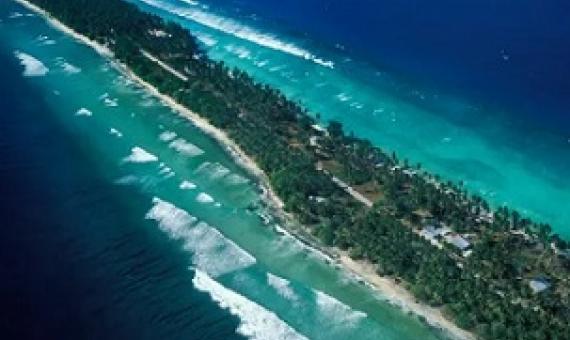My country joined the United Nations nearly 30 years ago, in September 1991. But unless my fellow member states take action, we may also be forced from it: the first country to see our land swept away by climate change.
A new, first of its kind fund to protect coral reefs was officially launched today on the sidelines of the 75th Session of the UN General Assembly, with a coalition of partners convening to mobilise resources to make coral reefs more resilient.
As the coronavirus pandemic compounds worsening economic pressures from climate change impacts, small island developing nations on Monday appealed for international financial support to help them avert a looming debt crisis...One major barrier, however, is that many island states in the Caribbean
Countries are set to miss all of the targets they set themselves a decade ago to preserve nature and save Earth's vital biodiversity, the United Nations said Tuesday. Humanity's impact on the natural world over the last five decades has been nothing short of cataclysmic: since 1970
Researchers identify the benefits that eradication of invasive vertebrates on islands can have for addressing socioeconomic and human health threats for island communities in alignment with the United Nations’ goals for 2030.
The world’s tropical forests are in serious trouble, with deforestation worsening and the sixth mass extinction accelerating faster than scientists previously thought.
Rights of Nature: Perspectives for Global Ocean Stewardship
The development of a new international legally binding instrument for the conservation and sustainable use of marine biodiversity beyond national jurisdiction (BBNJ agreement) is in the final negotiation phase. Legal recognition of rights of nature is emerging worldwide as a fresh imperative to preserve ecological integrity, safeguard human wellbeing, broaden participation in decision-making, and give a voice to nature – but so far exclusively within national jurisdiction. In this paper, we consider how a Rights of Nature perspective might inform the BBNJ agreement.
Traditional knowledge and the BBNJ instrument
Indigenous Peoples and local communities (IPLCs) are the holders of a vast amount of traditional knowledge of the ocean and its resources.
Protecting 30% of the planet for nature: costs, benefits and economic implications
The current report, based on the work of over 100 economists/scientists, analyses the global economic implications of a 30% PA target for agriculture, forestry, fisheries, and the PA/nature sector itself. (OECMs were only defined by the CBD in 2018, too recently to economically model, but we include a qualitative treatment of them.) n We carried out two analyses: a global financial one (concrete revenues and costs only); and a tropicsfocused economic one (including non-monetary ecosystem service values), for multiple scenarios of how a 30% PA target might be implemented.
A Better World (Vol.6)
With the establishment of the United Nations Sustainable Development Goals (SDGs) in 2015, the Human Development Forum launched a series of publications entitled A Better World, each volume dedicated to one of the 17 SDGs. This volume, published in June 2020, covers Goal 14 — Conserve and sustainably use the oceans, seas and marine resources for sustainable development. It is our belief that enhancing the contribution of marine biodiversity is hugely beneficial to the world in general, and to the future of small island developing states and least developed countries in particular.












